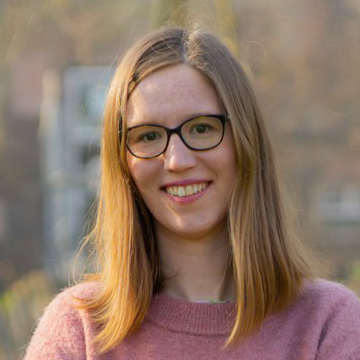 \
&
Contact us
\
&
Contact us
 \
&
Contact us
\
&
Contact us
Published on | 3 years ago
Last updated on | 4 months ago

sarah.stroobants@fwo.be
The goal of the Mission on Cancer is to improve the lives of more than 3 million people by 2030, through prevention, cure and for those affected by cancer including their families, to live longer and better.
Cancer affects everyone regardless of age, gender or social status and represents a tremendous burden for patients, families, and societies at large. If no further action is taken, the number of people newly diagnosed with cancer every year in Europe will increase from the current 3.5 million to more than 4.3 million by 2035. A mission in this area will help set common goals aiming to reverse these frightening trends in cancer.
By joining efforts across Europe, the Mission on Cancer together with the Europe’s Beating Cancer Plan will provide a better understanding of cancer, allow for earlier diagnosis and optimise treatment and improve cancer patients’ quality of life during and beyond their cancer treatment.
The Cancer Mission Implementation Plan aims to be the operational blueprint for how the Commission will deliver on the overall objective of the Mission on Cancer, providing an operational course of action across the four objectives. It specifies the main actions to be undertaken over the lifetime of the Mission.
The Commission invites researchers and innovators as well as citizens and all interested stakeholders to take part in the Mission on Cancer. Information on the Cancer Mission calls can be consulted on the Funding & Tenders Portal. Forthcoming and open calls under the Cancer Mission are published here.
A portfolio of projects & results (total EU-funding well over €3.5 billion) on cancer research and innovation funded under past framework programmes FP6 (2002-2006), FP7 (2007-2013) and Horizon 2020 (2014-2020) and the current Horizon Europe framework programme (2021-2027) can be found in the CORDIS database.
Cancer-related projects supported by European Regions can be found in the KOHESIO database.
The Commission has made its first assessment of the EU Missions in a Communication published in the 3rd quarter of 2023. It expresses the Commission’s support for the continuation of the 5 EU Missions. An external assessment of EU Missions was commissioned to underpin the Commission assessment, including a review of the Cancer Mission. You can find the summary of this review here & the full review is available here.
Find it out here.
We offer news and event updates, covering all domains and topics of Horizon Europe, Digital Europe & EDF (and occasionally, for ongoing projects, Horizon 2020).
Stay informed about what matters to you.
By signing up, you can opt in for e-mail notifications and get access to
a personalised dashboard that groups all news updates and event announcements in your domain(s).
Only for stakeholders located in Flanders
The ROOT project obtained funding under Horizon 2020 topic ‘EGNSS applications fostering societal resilience and protecting the environment’. The project, which ran from November 2020 to July 2022, aimed to demonstrate the benefit of Galileo OSNMA signal to increase the robustness of critical telecom infrastructures.
The Flanders-based company Septentrio contributed substantially to completing this objective together with the other ROOT partners. The results of the project partially close a gap in the security of telecommunication networks dependent on satellite-derived time, with indirect benefits in curbing illegal attempts to disrupt network services.